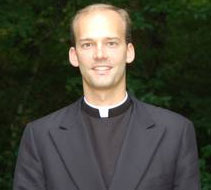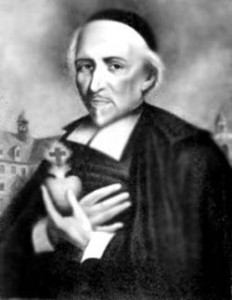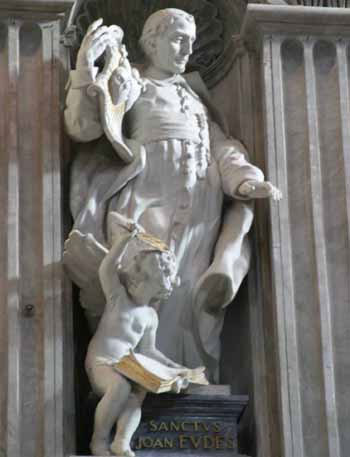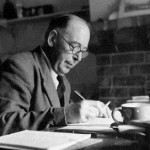From Anthony’s “Beginning to Pray” blog
Blessed Elisabeth of the Trinity helps us open our hearts to the coming of Christ. Â On the twelfth day of her Last Retreat, she offers a reflection on “the Word became flesh and dwelt among us.” Â Jesus has come to give us peace through opening up access to the Father’s house.
Whoever sees Christ sees the Father, and to see this love is to find that for which our hearts most long. Â This seeing, this contemplation, this knowledge is by faith. Â Here, faith is no mere assent to a body of information but a contemplative reality that seeks the saving truth and savors it. Â Faith is an encounter with the One whom the truths of our faith bear to us, and we believe what the Church proposes to us because we want to know Him. Â Whoever has surrendered his personal existence in response to the surpassing totality of love revealed by Christ crucified, this soul has gained access to the Father’s house, the freedom to go to our real spiritual home, the liberty that leads to our true peace.
Blessed Elisabeth sees the peace of Christ through the eyes of Saint Paul. Â Through the Blood of the Cross, the Lord leads all oppressive “Principalities and Powers” away “as captives, triumphing over them in Himself” (Col 2:15). Â Without the knowledge of Christ’s love, our dignity is vulnerable to all kinds of dehumanizing forces. Â But with the surpassing love we know in Christ Jesus, we are free from every form of irrational oppression — indeed, rather than rob of us dignity, the Lord permits all kinds of spiritual hardships only so that we might know the full extent of the greatness He calls us to and makes possible in our lives.
What the Apostle beheld in terms of oppressive cosmic forces, the Mystic of Dijon applies to our psychological powers.  Our interior battle with ambiguity and darkness in terms of our own patterns of thought and behavior is part of a cosmic struggle where evil powers attempt to overcome the light.  Just as Christ has taken diabolical powers captive, He also takes our psychological powers captive so that the ambiguity and confusion the emerges from them no longer robs us of our dignity as long as we persevere in believing in His love.  Her application  sees beyond the darkness of our interior frustrations to see the limitlessness of His mercy.
Beholding the unsurpassable love of the Lord, she understood how our limited powers of imagination, emotion, intuition, cognition and volition often hold us back. Â Without the Word of the Father, these powers subject us to a labyrinth of fears, anxieties, false judgments because they are subject, not to the truth, but to sin and disintegration. Â Left to their own, the powers of our soul frustrate that peace for which our hearts truly long.
Blessed Elisabeth also knew that Christ has the power to captivate, to hold even our own psychological powers captive. Â He does not lead our psychological powers by oppression and He is never violent. Â He attracts. Â He fascinates. Â He captivates – because in Him is the fullness of God, in Him all that is good, holy and true about humanity is revealed. Â His love is that beautiful and she knew this and longed for her friends to see it too. Â To see this love is to be freed from sin, to be raised up, to be capable of true praise.
Techniques and methods rooted primarily in our own powers lack the freedom to achieve moral rectitude and cannot access the peace of the Father’s house. Â Instead, Blessed Elisabeth invites us this Advent to allow our hearts to be drawn into a greater silence and solitude. Â The surpassing love of Christ is known in our weakness, poverty, and thirst. Â By humbling accepting this poverty of heart, the beatitude of His presence is ours.
Our faith truly accesses God. Â Instead of attempting spiritual feats of devotion, Blessed Elisabeth invites us to simply surrender to His presence breaking in all around us. Â To turn our thoughts to His great love is already to lift up our hearts. Â To waste time thinking on what He has done for us by humbly entering our human poverty, this is already to begin to taste eternity.
He is the light in the darkness and the darkness cannot overcome Him. Â So in the inconvenience and difficult of our poverty and lack of love, He remains, waiting for us so that we, each of us, is awaited by an uncommon love. Â She invites us to allow ourselves to be captivated: this Word, the Word made flesh, does not disdain humble humanity but cherishes his own birth in its frail freedom.
Tags: Anthony Lilles, faith, hearts, love
This entry was posted on Monday, December 22nd, 2014 at 8:28 pm
You can follow any responses to this entry through the RSS 2.0 feed.
The Novena for Holy Souls in Purgatory, Day 4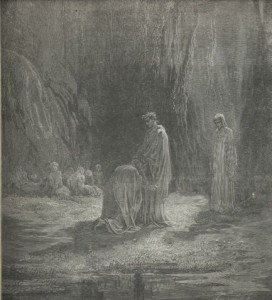
composed by by St. Alphonsus of Liguori
[powerpress]
My God! because Thou art infinite goodness, I am sorry with my whole heart for having offended Thee. I promise to die rather than ever offend Thee more. Give me holy perseverance; have pity on me, and have pity on those holy souls that burn in the cleansing fire and love Thee with all their hearts. O Mary, Mother of God, assist them by thy powerful prayers.
Say the following prayers: 1 Our Father… 1 Hail Mary… The Prayer to Our Suffering Saviour for the Holy Souls in Purgatory found below.
Visit the Discerning Hearts “Holy Souls†page for the complete novena and text of the prayers
Tags: catholic, catholic podcast, catholic prayer, cathollc spirituality, heart, hearts, holy souls, holy souls in purgatory, poor souls, prayers, purgatory, souls in purgatory
This entry was posted on Monday, October 27th, 2014 at 12:02 am
You can follow any responses to this entry through the RSS 2.0 feed.
[powerpress]
On this last day of 2013, Â I hope you can take just a couple of minutes to listen to the audio above.
 I hope you can take just a couple of minutes to listen to the audio above.
With the addition of our new apps for Iphone, Ipad and Android devices our work has expanded greatly.
Did you know that we average over 175,000 audio downloads a month? And that figure  does not include the video hits, page views, which exceed 5000 a day.  But it’s not really about numbers, it’s about hearts…hearts seeking answers and peace…hearts seeking, ultimately,  The Father, the Son, and the Holy Spirit.  God is so very good!
This brings about new challenges, and honestly, expenses.
First, I ask that you please pray for the work of “Discerning Hearts”…this is the most important thing. Â But then I would also ask those who have been blessed to please consider helping us with a year end donation.
Discerning Hearts is a 501 c 3 non-profit public charity with ALL donations FULLY tax-deductible in the U.S. Â We receive no funding from any Catholic Radio Station or Catholic Diocese. Â We are truly 100% donor supported. Please check out the DONATE page. Â It’s safe and secure and you will be helping us to continue the work that God has called us to.
Thanks for your time and prayerful consideration.
May our patrons, St. Padre Pio, Blessed Mother Teresa, and Blessed John Paul II, pray for us.
May the Immaculate Heart of our Blessed Mother, pray for us.
And may the Sacred Heart of Jesus, have mercy on us all.
Amen.
Tags: audio, downloads, hearts, work
This entry was posted on Tuesday, December 31st, 2013 at 11:54 am
You can follow any responses to this entry through the RSS 2.0 feed.
Liturgy of the Hours
[powerpress]
 For centuries Catholic priests, monks and nuns sanctified their days by praying the Psalms. This practice was inherited from the Jews, who prayed at set times in the temple. The Western Church was largely influenced by the Benedictine monks, who immersed themselves in the Psalms seven times each day, in addition to Mass and private prayer.
For centuries Catholic priests, monks and nuns sanctified their days by praying the Psalms. This practice was inherited from the Jews, who prayed at set times in the temple. The Western Church was largely influenced by the Benedictine monks, who immersed themselves in the Psalms seven times each day, in addition to Mass and private prayer.
The Church today encourages the laity to pray a shorter form of this called the “Liturgy of the Hours.â€Â The two major parts of this are called morning prayer and evening prayer, and there are also readings for each day corresponding to the seasons of the Church’s liturgical calendar.
Praying the Liturgy of the Hours can be a powerful tool. It helps us acquire the discipline of regular prayer and fills our hearts and minds with Scripture as we go about our days. I once heard a priest say every single one of the priests he knew who had left the priesthood had stopped praying their daily office of prayer.
For more info talk to your priest or Catholic bookstore, and cover your household in spiritual protection each day with Mass, rosary, and the Liturgy of the Hours
Tags: divine office, Faith Check, hearts, liturgy of hours, prayer, priests
This entry was posted on Monday, November 11th, 2013 at 12:11 am
You can follow any responses to this entry through the RSS 2.0 feed.
FG#4 – Interior Freedom episode 2- Fountains of Grace: reflections on contemporary spiritual classics with Donna Garrett
Join host Donna Garrett, with Fr. Daniel Brandenburg, LC, as they discuss the spiritual classic “Interior Freedom” by Fr.  Jacques Philippe  a priest of  Communaute des Beatitudes, an international association of the faithful of Pontifical Right founded in France in 1973.  The members of the Community, which has a contemplative vocation based on Carmelite spirituality, are actively engaged in the service of the poor and the proclamation of the Gospel.
[powerpress]
Discussed in this episode, among other topics, Â from “Interior Freedom” page 75
“Let us ask ourselves this question, to what degree can the evil in my surroundings effect me? With the apologies to those I am going to scandalize,I say that the evil around us- the sins of others, of people in the church, of society-does not become an evil for us unless we let Him penetrate our hearts. The point isn’t that we should become indifferent. Just the opposite. The holier we are the more we will suffer due to the evil and sin in the world. But external evil only harms us to the degree we react badly to it, by fear, worry discouragement, sadness,giving up, rushing to apply hasty solutions that don’t solve anything judging, fostering bitterness and resentment, refusing to forgive and so on. Jesus say in St Mark’s Gospel, There is nothing outside of man which going into him can defile him but the things which come out of a man are what defile him. Harm does not come to us(our souls) from external circumstances, but from how we react to them interiorly.”

You can find “Interior Freedom” here
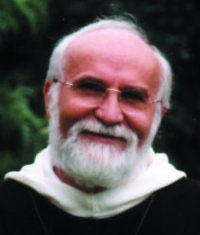
Fr. Jacques Philippe
.
Tags: Donna Garrett, evil, fear, hearts, sin, suffering
This entry was posted on Thursday, March 28th, 2013 at 1:08 pm
You can follow any responses to this entry through the RSS 2.0 feed.
Mike Aquilina shares with us the story of St. Agnes.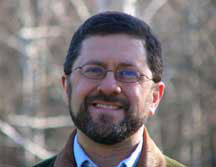
[powerpress]
 A young girl who would help to break open the hearts of many, so that grace could pour in. She was “a lamb for Christ”.  Mike also discusses the challenges to life, including the “ancient” practice of abortion.
A young girl who would help to break open the hearts of many, so that grace could pour in. She was “a lamb for Christ”.  Mike also discusses the challenges to life, including the “ancient” practice of abortion.
wiki – According to tradition, Saint Agnes was a member of the Roman nobility born c. 291 and raised in a Christian family. She suffered martyrdom at the age of twelveor thirteen during the reign of the Roman Emperor Diocletian, on 21 January 304.
The Prefect Sempronius wished Agnes to marry his son, and on Agnes’ refusal he condemned her to death. As Roman law did not permit the execution of virgins, Sempronius had a naked Agnes dragged through the streets to a brothel. Various versions of the legend give different methods of escape from this predicament. In one, as she prayed, her hair grew and covered her body. It was also said that all of the men who attempted to rape her were immediately struck blind. In another the son of the prefect is struck dead, but revived after Agnes prayed for him, causing her release. There is then a trial from which Sempronius excuses himself, and another figure presides, sentencing her to death. When led out to die she was tied to a stake, but the bundle of wood would not burn, or the flames parted away from her, whereupon the officer in charge of the troops drew his swordbeheaded her, or, in some other texts, stabbed her in the throat. It is also said that the blood of Agnes poured to the stadium floor where other Christians soaked up the blood with cloths. and
The daughter of Constantine I, Saint Constance, was also said to have been cured of leprosy after praying at Agnes’ tomb.
A prayer to St. Agnes
Let us gain courage for our own battle
by honoring the martyrdom of the glorious virgin Agnes.
St. Agnes, vessel of honor,
flower of unfading fragrance,beloved of the choirs of Angels,you are an example to the worth of virtue and chastity.
O you who wear a Martyr’s palm
and a virgin’s wreath,
pray for us that,
though unworthy of a special crown,
we may have our names written in the list of Saints.
Tags: catacomb, fathers mike, hearts, martyrdom, mike aquilina, saint agnes, virgins, virtue
This entry was posted on Monday, January 21st, 2013 at 12:43 am
You can follow any responses to this entry through the RSS 2.0 feed.
What great fun and an outstanding resource all in one fantastic book. Â I love Jane Austen…I love this book. Â  Elizabeth Kantor gets it so right! Â The book description says it best:
Elizabeth Kantor gets it so right! Â The book description says it best:
Women today are settling for less than we want when it comes to men, relationships, sex, and marriage. But we don’t have to, argues Elizabeth Kantor. Jane Austen can show us how to find the love we really want.
In The Jane Austen Guide to Happily Ever After, Kantor reveals how the examples of Jane Austen heroines such as Elizabeth Bennett, Elinor Dashwood, and Anne Elliot can help us navigate the modern-day minefields of dating, love, relationships, and sex. By following in their footsteps—and steering clear of the sad endings suffered by characters such as Maria Bertram and Charlotte Lucas—modern women can discover the path to lifelong love and true happiness.
Charged with honesty and humor, Kantor’s book includes testimonies from modern women, pop culture parallels, the author’s personal experiences and, of course, a thorough examination of Austen’s beloved novels.
[powerpress]
 You can find the book here
You can find the book here
“This book would have helped me avoid a few broken hearts for sure! Kantor teaches you how to guard your emotions in an independent, sophisticated, and empowered way through Jane Austen’s works. She offers timeless wisdom for the modern woman, and most importantly, encourages us to take our relationships seriously.”
—Amy Bonaccorso, author of How to Get to “I Do”
Tags: catholic, catholic podcast, catholic prayer, cathollc spirituality, Elizabeth Kantor, hearts, jane austen, love, regenery, women
This entry was posted on Friday, June 1st, 2012 at 7:46 am
You can follow any responses to this entry through the RSS 2.0 feed.
Heart of Hope Part 3 – What is Redemptive Suffering…using love and the energy of love to redirect pain as an intercessory prayer for another…how it makes sense and is no longer meaningless
[powerpress = “deacon-james-keating”]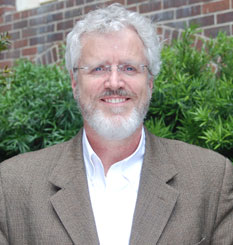
Deacon James Keating, PhD, the director of Theological Formation for the Institute for Priestly Formation, located at Creighton University, in Omaha, is making available to “Discerning Hearts” and all who listen, his series of programs entitled “The Heart of Hope”.
This extraordinarily popular series explores the work of suffering in the Christian life and how God can use it to transform the heart of the individual and the world. 
The “Heart of Hope”  tackles a very tough subject…the gift of suffering in the Christian life. Deacon Keating guides us well.
For more information on the “Institute of Priestly Formation” and for other material available by Deacon Keating, just click here
Don’t forget to pickup a copy of “Communion with Christ” , it is one of the best audio sets on prayer…ever!
Check out Deacon Keating’s “Discerning Heart” page
Tags: catholic, catholic podcast, catholic prayer, cathollc spirituality, communion, discerning heart, hearts, institute for priestly formation, intercessory prayer, james keating, love, redemptive suffering
This entry was posted on Saturday, October 1st, 2011 at 8:00 am
You can follow any responses to this entry through the RSS 2.0 feed.
Heart of Hope Part 2 – The agony of emotional suffering and opportunities for deeper union with Jesus; the reason for pastoral ministry
[powerpress = “deacon-james-keating”]
Deacon James Keating, PhD, the director of Theological Formation for the Institute for Priestly Formation, located at Creighton University, in Omaha, is making available to â€Discerning Hearts†and all who listen, his series of programs entitled “The Heart of Hopeâ€.
This extraordinarily popular series explores the work of suffering in the Christian life and how God can use it to transform the heart of the individual and the world. 
The “Heart of Hope† tackles a very tough subject…the gift of suffering in the Christian life. Deacon Keating guides us well.
For more information on the “Institute of Priestly Formation†and for other material available by Deacon Keating, just click here
Don’t forget to pickup a copy of “Communion with Christ†, it is one of the best audio sets on prayer…ever!
Check out Deacon Keating’s “Discerning Heart†page
Tags: abandonment, agony, alone, catholic, catholic podcast, catholic prayer, cathollc spirituality, creighton university, Deacon James Keating, Deacon Keating, discerning heart, hearts, institute for priestly formation, isolation, james keating, Jesus, lonliness, parish, PhD, suffering, theological formation
This entry was posted on Thursday, September 15th, 2011 at 3:38 am
You can follow any responses to this entry through the RSS 2.0 feed.
St. John Eudes,  the great disciple of the two hearts of  Jesus and Mary….it is ALL about the heart!Â
He believed in the unity of the hearts of Jesus and Mary and wrote:”You must never separate what God has so perfectly united. So closely are Jesus and Mary bound up with each other that whoever beholds Jesus sees Mary; whoever loves Jesus, loves Mary; whoever has devotion to Jesus, has devotion to Mary.”
We “heart” St. John Eudes!
May this great lover of the two hearts, pray for us!
                                           
Tags: catholic, catholic podcast, catholic prayer, cathollc spirituality, hearts, immaculate heart, Jesus, Jesus and Mary, Jesus sees Mary, John Eudes, John Eudes Statue, sacred heart, st john eudes, two hearts
This entry was posted on Friday, August 19th, 2011 at 7:11 am
You can follow any responses to this entry through the RSS 2.0 feed.
“Narnia And Beyond: A Guide to the Fiction of C. S. Lewis” by Thomas Howard is fantastic.  Dr. Howard is regarded as one of the leading authorities on the works of C. S. Lewis, and with remarkable clarity he shares with us all the Lewis that has touched the hearts and minds of so many generations, both young and old. It is always a joy to talk with Thomas Howard, but this conversation was particularly enlightening.
Dr. Howard is regarded as one of the leading authorities on the works of C. S. Lewis, and with remarkable clarity he shares with us all the Lewis that has touched the hearts and minds of so many generations, both young and old. It is always a joy to talk with Thomas Howard, but this conversation was particularly enlightening.
[powerpress]
You can check out the book at igantius.com
Tags: c s lewis, catholic, catholic podcast, catholic prayer, cathollc spirituality, hearts, ignatius press, joy, leading authorities, narnia, thomas howard, works
This entry was posted on Thursday, December 9th, 2010 at 4:37 pm
You can follow any responses to this entry through the RSS 2.0 feed.
A marvelous work that takes all the grand imagery of the Book of Revelation and bring s it into our aching hearts today. Fr. Richard Veras allows the symbols of Revelation to stand as the inspired work of God and helps us to see the why, as well the when of it’s message. Many readers will be familiar with Fr. Veras as a frequent contributor to Magnifcat magazine. With this new work, those readers, as well as new ones, will not be disappointed.
s it into our aching hearts today. Fr. Richard Veras allows the symbols of Revelation to stand as the inspired work of God and helps us to see the why, as well the when of it’s message. Many readers will be familiar with Fr. Veras as a frequent contributor to Magnifcat magazine. With this new work, those readers, as well as new ones, will not be disappointed.
Click here for more information on Fr. Veras’ book
[powerpress]
Tags: apocalyptic book, book of revelation, catholic, catholic podcast, catholic prayer, cathollc spirituality, hearts, richard veras, servant books, work
This entry was posted on Tuesday, September 7th, 2010 at 9:45 am
You can follow any responses to this entry through the RSS 2.0 feed.
 Compelling just isn’t a big enough word to capture the work that Fr. Paul Hamans has given us in this book. “Edith Stein and Companions on the Way to Auschwitz” not only gives us a portrait of the great saint, but gives us the faces and insights into the hearts of those we call “companions”…be prepared to be both heartbroken and inspired at the same time.
Compelling just isn’t a big enough word to capture the work that Fr. Paul Hamans has given us in this book. “Edith Stein and Companions on the Way to Auschwitz” not only gives us a portrait of the great saint, but gives us the faces and insights into the hearts of those we call “companions”…be prepared to be both heartbroken and inspired at the same time.
 Find this book at the Ignatius Press website
Find this book at the Ignatius Press website
-[powerpress]
Tags: auschwitz, catholic, catholic podcast, catholic prayer, cathollc spirituality, edith stein, hearts, igantius press, ignatius press, Paul Hamans, work
This entry was posted on Monday, August 9th, 2010 at 7:11 am
You can follow any responses to this entry through the RSS 2.0 feed.



